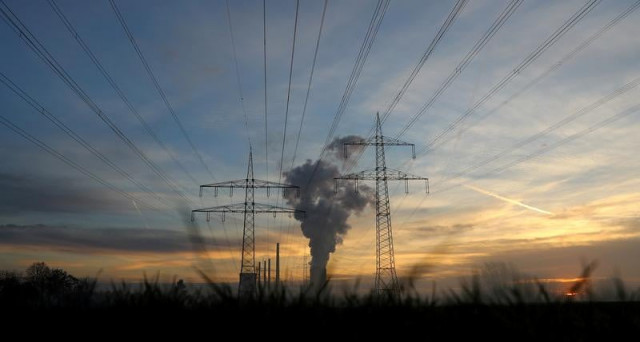Senate panel seeks details of closed plants
Chairman suggests instead of shutting down, power plants should be rehabilitated

The Senate Standing Committee on Power has sought details of power plants which were shut down on the directive of Cabinet Committee on Energy, installation cost of these plants and future strategy.
The Senate committee, which met on Wednesday and headed by Chairman Senator Saifullah Abro, sought names of all those who had served on boards of these generation companies (Gencos) since 2000 and a report on the losses suffered by the companies.
The committee noted that the objectives for which Genco Holding Company was set up in 2012 could not be achieved.
The CEO of Genco Holding Company, while highlighting the issues that caused the closure of power plants, said that the government had closed SPS Faisalabad, GTPS Faisalabad, FBC Lakhra, EGPS Peran Ghaib Multan and GTPS Shahdara. The production capacity of those power plants was 1,796 megawatts.
The CEO emphasised that the performance of new power plants was better than the old ones.
When committee members asked about TPS Quetta, the CEO replied that the power station, which was set up by Mitsubishi in the 1980s, was currently closed.
Committee members also asked about the additional charge given to the CEO of Genco-II. Responding to that, the power secretary said that the additional charge of Genco-III had been given because other CEOs faced allegations of serious shortcomings.
Owing to the allegations, they had been removed from office and an independent inquiry committee had been constituted to look into the matter.
Committee Chairman Abro sought a detailed report on the installation cost of the closed power plants and the future strategy in the next meeting.
“Everything has a working period after which its performance starts declining and it becomes difficult to get positive results,” the additional power secretary said, adding that the government decided to close those public sector power companies.
During the meeting, the chairman of National Electric Power Regulatory Authority (Nepra) told the committee that the authority was set up in 1997 and all previous contracts in the power sector were struck in dollars.
“Now, we are not taking projects based on imported fuel. Nepra is a regulatory body whose job is to deal fairly with all power sector companies,” said Nepra Chairman Tauseef Farooqi.
“Instead of shutting down power plants, there should be an option for their rehabilitation,” Abro emphasised.
Read Gas crisis feared as LNG price soars
The regulator had asked the government to prepare a plan for the rehabilitation of power plants but so far no progress had been made, the Nepra chairman said.
He said that the power plants could operate for 20 years instead of 40 years due to lack of repair work.
“Before the plants were shut, their previous year’s performance was evaluated,” the Nepra chairman said.
He stressed that the issue was not power shortage as the country had surplus electricity, estimated at 37,000 to 38,000 megawatts.
The committee chairman questioned as to how many technical officials were prosecuted in the January blackout incident?
Issuing a directive on behalf of the committee, its chairman said that the ministry should bind all the relevant power distribution companies (DISCOs) to eliminate illegal connections and fix the recovery system to reduce circular debt.
The committee was informed that Rs900 billion was being paid to independent power plants (IPPs) in capacity payments.
Published in The Express Tribune, October 7th, 2021.
Like Business on Facebook, follow @TribuneBiz on Twitter to stay informed and join in the conversation.


1733130350-0/Untitled-design-(76)1733130350-0-208x130.webp)
















COMMENTS
Comments are moderated and generally will be posted if they are on-topic and not abusive.
For more information, please see our Comments FAQ